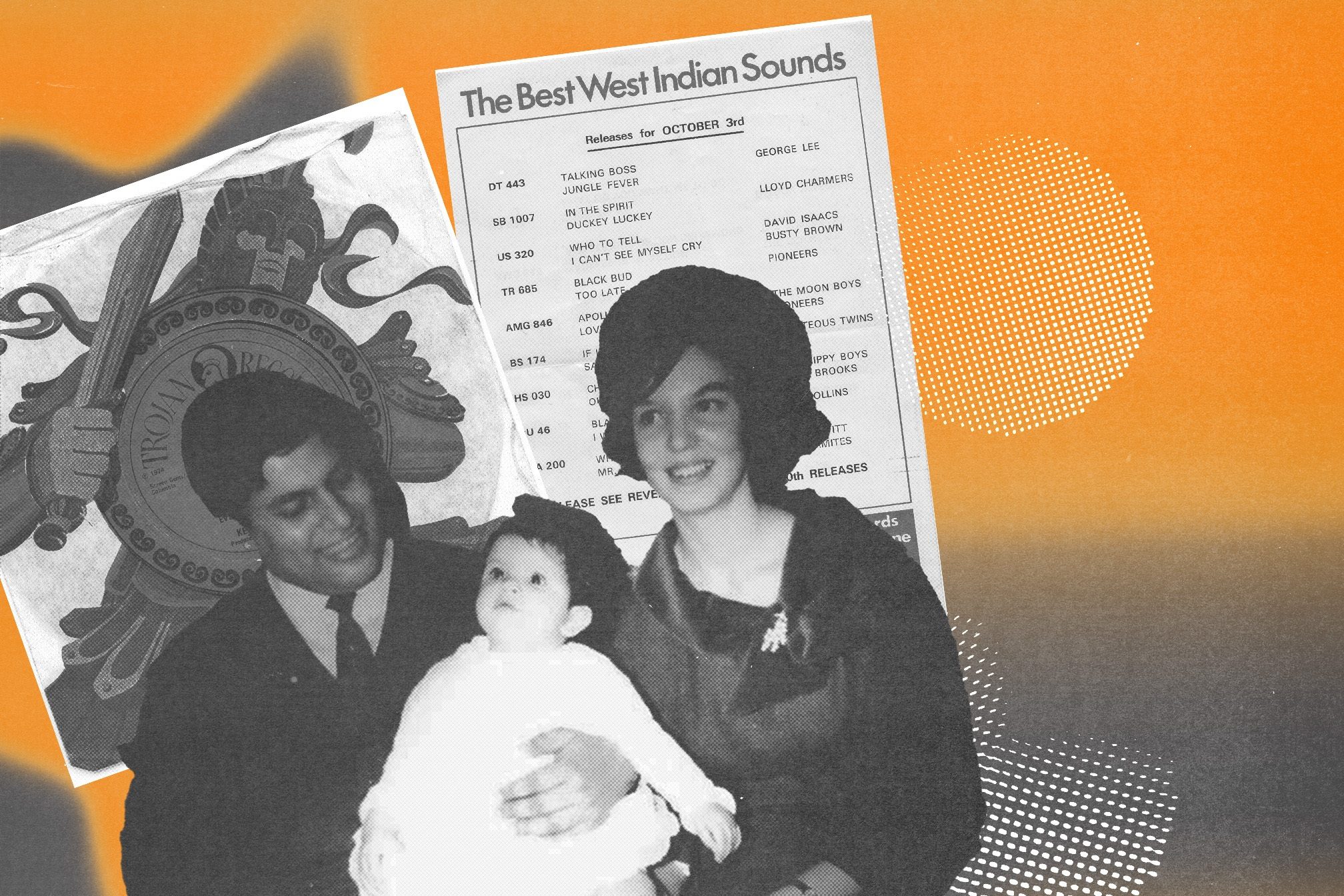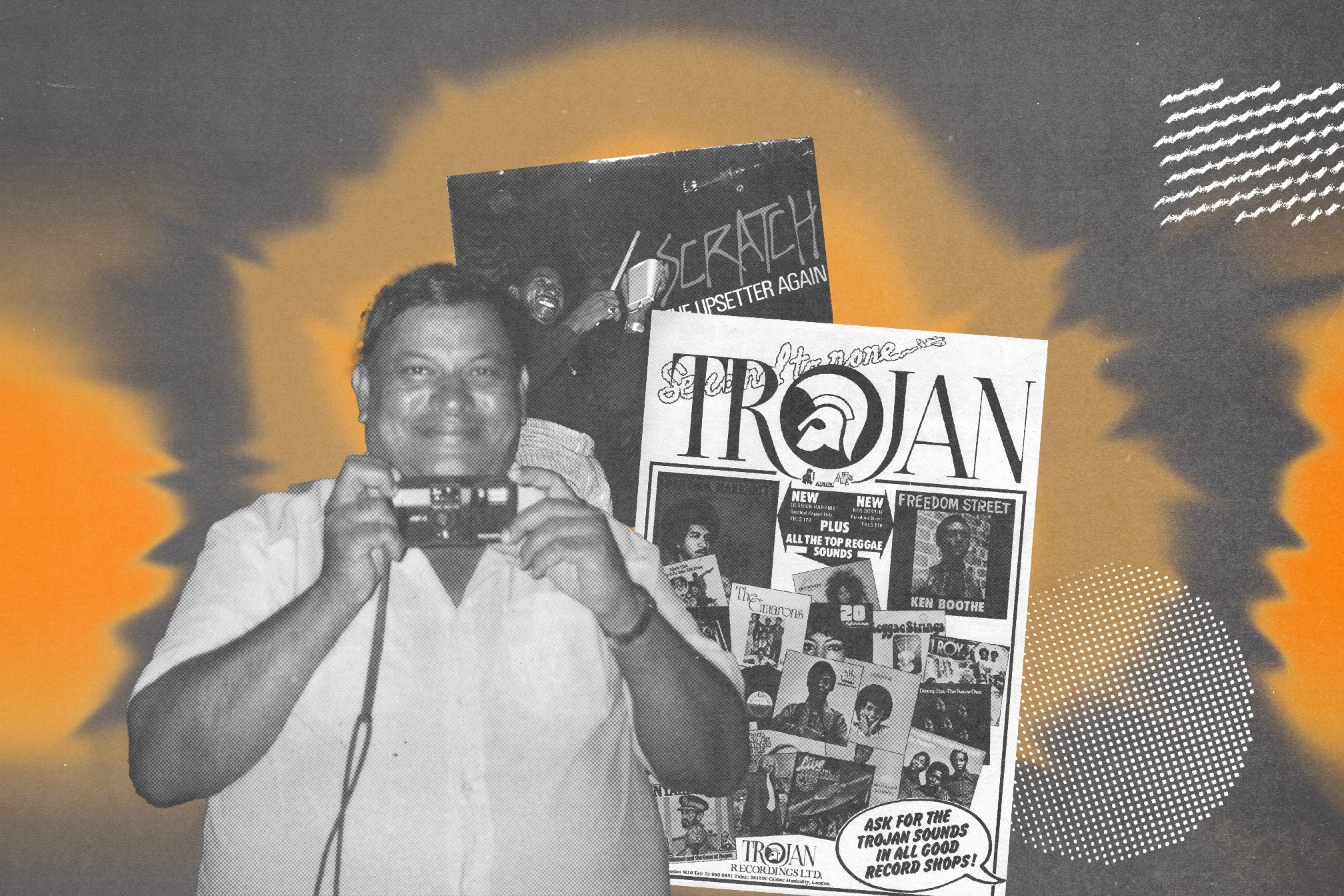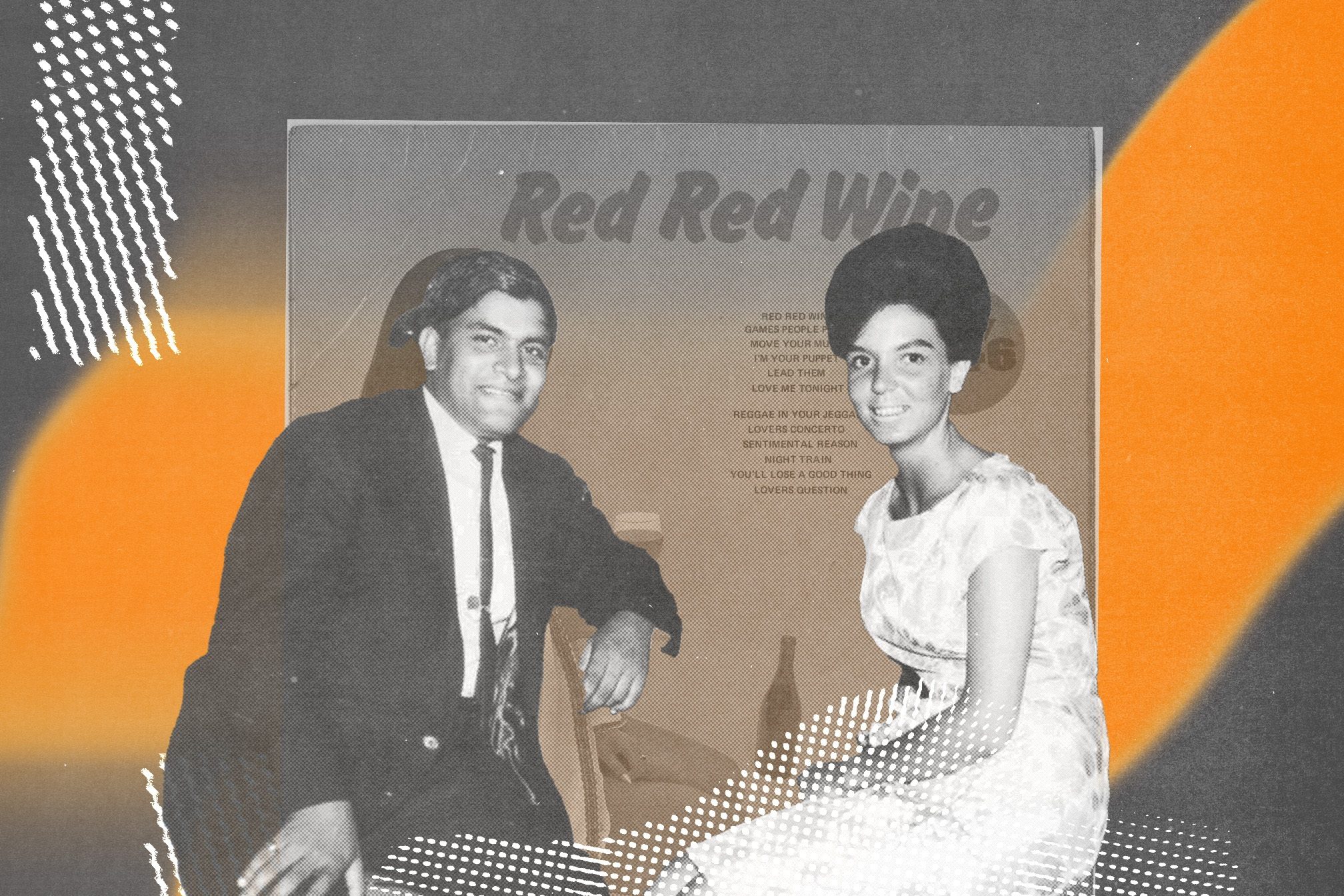 Features
Features
How Trojan Records founder Lee Gopthal created a musical legacy of love, hope and unity
The son of an Indo-Jamaican Windrush migrant, Lee Gopthal was the humble businessman whose kind, gentlemanly way led to a musical revolution. Charis McGowan speaks to family and peers to pay tribute
Mixmag is running an editorial series to mark the 75th anniversary of Windrush, find out more here
Trojan Records was launched in the summer of 1968, the joint-venture of Indo-Jamaican Lee Gopthal and Jamaican-raised Briton, Chris Blackwell, who founded Island Records, to cater to a budding population of Caribbean migrants in the UK who sought refuge in the sounds of home.
The same year that Enoch Powell fuelled xenophobic attitudes with his infamous “Rivers of Blood” speech, warning white Britons of a near-future where “Black man will have the whip hand over the white man”, Trojan Records kickstarted a heroic legacy of bringing West Indian music to the United Kingdom, and bridging cultures through music.
What veteran DJ and cultural historian Don Letts has often described as a “tool for societal change”, Trojan brought together Caribbean migrants and white working class youth, paving the way for a celebrated multicultural Britain. Gopthal, who began selling reggae music to the West Indian community in London from the back of his car, stood out as an immigrant person of colour, running a label in a forbiddingly white world of music executives and radio disc jockeys.
Read this next: Why the radiogram is a sacred piece of music technology
Gopthal’s father, Sikarum, arrived in the UK on the Empire Windrush in 1948, and Lee Gopthal followed in 1952. In 1962, Lee was working as an accountant and living in the flat above his father’s tailor shop on 108 Cambridge Road, London. Lee went on to purchase the building and leased a room to Chris Blackwell for his fledgling Island Records operation.
At the time, Blackwell was distributing a raunchy title called ‘Music to Strip By’. “I packaged [the record] with a G-String, and Lee Gopthal, or his father, sewed it for me. It sold very well!” he tells Mixmag, laughing. “That’s how we first met.”

In 1964, Blackwell produced Millie Smalls’ ‘My Boy Lollipop’, which sold 7 million records and proved that Jamaican music could have worldwide success. Despite this, British radio still refused to touch reggae records. “Nobody wanted to buy my records initially, the only people who wanted to buy were little Jamaican record stores,” recalls Blackwell. Island Records’ stock was collecting dust in Cambridge Road, leading Gopthal to establish record distribution company, Beat & Commercial Records. Where Blackwell’s Island team focused on sourcing and producing the material, Gopthal concentrated on retail.
Seeking new audiences but shunned by the BBC, Gopthal advertised the label on pirate stations Caroline and Radio London. According to the 2003 book Young, Gifted & Black: The Story of Trojan Records, Gopthal recalled, “people thought I was mad to advertise on London and Caroline, but I was selling a hell of a lot of records.”
His efforts ensured that ‘007’ by Desmond Dekker & The Aces rocked to No. 14 in the UK's charts - one of the first rocksteady songs to reach commercial success. Combining unparalleled smoothness and irresistible stage presence, Dekker ingeniously combined a laidback melody that somewhat jarred to the social commentary of his lyrics: ‘007’ was about the gruelling violence of Jamaica's shantytowns. Dekker went on to be the first chart-topping Jamaican artist with ‘Israelites’ in 1967, a hit that captured the poverty and hardships of the Caribbean. Both songs were released on Gopthal’s initial Pyramid label in 1967, which eventually was absorbed into the wider Trojan venture.
Read this next: On Sundays, Glorious Sundays, the culture of the Windrush generation came to the fore
Not solely restricted to Jamaican imports, Gopthal also began to back UK-based West Indian musicians like Dandy Livingstone, who penned the rocksteady anthem ‘A Message for You Rudy’, which would later be popularised by The Specials.
Lynval Golding, guitarist and vocalist of The Specials, recalls growing up listening to Trojan Records progeny including Dekker, Livingstone, Ken Boothe, Nicky Thomas and Jimmy Cliff. He says they helped him through the trauma of experiencing intense racism as a schoolboy in Coventry: “So much power in those songs, that’s what uplifted me as a Black youth growing up in England.”
Golding credits Trojan Records for The Specials’ formation and the success of the 2-tone movement of the late 1970s early 1980s: “For uniting Black and white! It was the music that got us together, Trojan and Island played a big part in us.”

Trojan's golden era of hits included Ken Boothe’s UK No.1 romantic bop ‘Everything I Own’, Bob & Marcia’s reggae cover of Nina Simone’s ‘(To Be) Young Gifted and Black’, timelessly cool instrumental tracks Harry J Allstars’ ’Liquidator’ and The Upsetters’ ‘Return of Django’, The Paragons’ Blondie/Atomic Kitten-covered love ode ‘The Tide is High’, and Dave & Ansel Collins’ game-changing ‘Double Barrel’, which infused the MC ‘toasting’ technique of Jamaican soundsystems that would go on to influence rap and hip hop.
By the early 1970s, Trojan was dominating the UK charts, fervently scouting and importing dozens of Jamaican releases every week. Valerie Haines, Gopthal’s daughter, remembers her Dad would “come home and play demos to see if my brother and I liked them.” She said he “had an excellent ear for artistic talent.. selecting many hit records that made it into the top of the charts.”
Yet as Jamaican music grew more political with the rise of Bob Marley-fronted roots reggae, Trojan failed to keep up with the times. Blackwell shifted his focus to rock music, and pulled out of Trojan in 1972. After a few years, Gopthal began to struggle.
Read this next: Hak Baker is taking down the powers-that-be and having fun with it
“He was also a victim of [Trojan’s] own success really, growing too rapidly without the robust business infrastructure that it needed,” recalls Haines, who was 11-years-old when her father was forced to sell Trojan to Saga Records in 1974.
During liquidation meetings, the brokers told Gopthal that, as an Indian man, he would have been better off running a greengrocer than a music empire. Haines says her father was “deeply affected”: “Trojan literally was his "baby" and he was truly a broken man when he lost it.” Gopthal went on to work in insurance, and passed away in 1997.
Blackwell similarly laments Trojan’s ending, despite the differences between the two men prior to Islands’ departure. “I was upset about the fact it happened as it did,” he says. With Island, Blackwell went on to sign Bob Marley and have great success with artists including U2, Tom Waits, Ultravox and Roxy Music.

In 2018, docu-film Rudeboy: The Story of Trojan Records was released to celebrate Trojan’s 50th anniversary. Gopthal was, rightly, a main protagonist in the story.
“I think the genius of it is that he wasn’t Blackwell or those kinds of music execs,” says the film’s director Nicolas Jack Davies. “It was a supply-and-demand business: we’re from here, there’s no music for our people here, let’s bring it in.”
Davies says that he only heard good things about Gopthal during his research. “He was humble with it. He was loved,” he says.
The late Bunny Lee, a legendary Jamaican record producer who licensed his productions to Trojan in the 1970s, is seen in the film describing Gopthal as a “gentleman who helped us out a lot”.
In 2020, Gopthal was awarded a special recognition award by the Jamaica Industry Reggae Association for his exceptional contribution to the reggae industry. Haines says that she, alongside her mother, brother and children, “cannot be more proud” of Lee Gopthal’s legacy.
“Against a backdrop of cut-throat politics and racism, Trojan was at the heart of a cultural revolution producing ska and reggae sounds that united Black and white youths on the dancefloor,” she says. “He'll be looking down smiling, probably in total disbelief of the magnitude and impact of what he created.”
Charis McGowan is a freelance writer, follow her on Twitter


